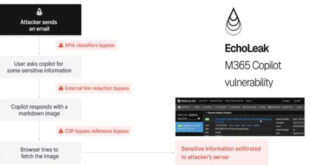Lazarus Group has initiated a complex global campaign aimed at software developers and cryptocurrency users. Operation Marstech Mayhem uses the group’s new implant, “Marstech1,” to access the software supply chain and steal sensitive data.
The campaign signifies a major change in the group’s tactics, targeting hidden malware in open-source repositories and popular development platforms.
The Lazarus Group has strategically targeted developers by embedding malicious JavaScript implants into GitHub repositories and npm packages.
Since mid-2024, the “SuccessFriend” GitHub profile has been used by attackers to publish both legitimate and malicious code in its repositories. These repositories look trustworthy to trick victims into cloning and running them.
Once deployed, the malware silently connects to command-and-control servers to download additional payloads and exfiltrate data.
This campaign primarily targets cryptocurrency wallets like MetaMask, Exodus, and Atomic.
The malware targets wallets on Windows, macOS, and Linux, altering browser settings to inject payloads that intercept transactions.
This tactic puts individual developers at risk and can spread harmful code to millions of users through software dependencies.
Technical Sophistication of Marstech1:
The Marstech1 implant uses advanced obfuscation techniques that make it hard to detect. This includes methods like control flow flattening, random variable naming, Base64 encoding, anti-debugging checks, and multi-stage decryption.
The malware also utilizes Python implants to alter browser settings and target extensions like MetaMask. It not only steals cryptocurrency but also gathers system details, such as hostnames and operating systems. Stolen data is packaged with unique identifiers and sent to command and control (C2) servers through encrypted channels.
SecurityScorecard’s STRIKE team has identified over 230 victims across the U.S., Europe, and Asia since late 2024. The group’s infrastructure includes C2 servers on unusual ports, using Node.js Express backends, which marks a shift from previous Lazarus operations.
This operation aligns with the Lazarus Group’s goals of financial theft and espionage to support North Korea’s regime. By infiltrating developer environments, they can access intellectual property, credentials, and cryptocurrency, causing significant financial losses.
The campaign highlights vulnerabilities in the software supply chain. Developers should rigorously check code sources, monitor network activities, and deploy endpoint protection to detect obfuscated scripts. Organizations must also audit third-party dependencies regularly and use advanced threat intelligence to guard against sophisticated threats.
The adaptability shown in this operation emphasizes the need for increased vigilance in the developer community. As supply chain attacks become more complex, proactive defense strategies are crucial for protection against future threats.
 InfoSecBulletin Cybersecurity for mankind
InfoSecBulletin Cybersecurity for mankind














